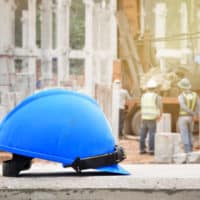 Construction is a high-pressure industry, with employees and administrators dealing with constant deadlines and tight budgets. These factors along with on-site hazards, such as scaffolding, power tools, electrical problems, and bad weather, led to over 5,100 worker deaths in 2017. Construction insiders may be familiar with the Fatal Four, which are the top causes for private sector construction worker fatalities. Reported by the U.S. Department of Labor, these include:
Construction is a high-pressure industry, with employees and administrators dealing with constant deadlines and tight budgets. These factors along with on-site hazards, such as scaffolding, power tools, electrical problems, and bad weather, led to over 5,100 worker deaths in 2017. Construction insiders may be familiar with the Fatal Four, which are the top causes for private sector construction worker fatalities. Reported by the U.S. Department of Labor, these include:
- Falls
- Being struck by an object
- Electrocutions
- Caught in/between accidents
Every worker has the right to a safe workplace and promoting construction site safety that focuses on the Fatal Four is a good starting point. Many organizations, including the Occupational Safety and Health Administration (OSHA), set helpful guidelines.
Training Sessions
Construction employees learn as they work, but safety training should be done beforehand. OSHA provides resources that cover standard safety procedures, security, fall protection, and more. Continuing education is important, as it reinforces these lessons and keeps safety on everyone’s mind. Practicing these skills on-site is another good idea. These events can be promoted on the jobsite, and workers can be offered perks, such as snacks, coffee, and even gift cards as encouragement to attend.
Proper Gear and Tools
Having the correct safety gear is essential for construction workers. Hard hats, goggles, and face shields can guard heads, eyes, and faces from falls, chemicals, electrical hazards, and flying objects. Hands and feet should also be protected, with sturdy work gloves, non-slip work shoes, and safety-toe boots. All gear should be maintained and changed out if dented, cracked, or torn; any items damaged from an incident should be tossed and replaced.
Workers also need to have the right tools and space to complete their jobs safely. Each piece of equipment should be used for what it was intended to do, and should be clean and properly functioning. Training is also important, since a worker that uses a tool improperly might be courting disaster.
Communication and Documentation
Construction workers should be connected to their colleagues and supervisors to receive direction and to communicate necessary information. A clear plan should be devised and adhered to, since this avoids miscommunication and is essential should an emergency occur. Managers have the added responsibility of documenting all of the work, and this includes getting the right permits, licenses, and registrations. Safety hazards should also be noted and addressed, with every detail in writing.
Managers should also set a good example by promoting a safe workplace environment to their workers. Daily or weekly safety meetings are helpful, as they forge a team effort and help employees internalize the message. Companies that do not have safety policies should consider creating them, and these should include worker safety expectations, emergency planning, and procedures.
Having workers contribute to these meetings with their own suggestions can be valuable, as they can have hands-on insights. Allowing them to speak up in a non-threatening environment can lead to productive meetings, more cooperation, and less accidents on the job.
South Jersey Construction Accident Lawyers at the D’Amato Law Firm Help Injured Workers with Their Claims
When doing your job leads to a workplace injury, contact the skilled South Jersey construction accident lawyers at the D’Amato Law Firm. We will fight for your rights and obtain the compensation you deserve. Located in Egg Harbor Township, New Jersey, we serve clients throughout South Jersey, including Atlantic City, Linwood, Galloway Township, Cape May, Vineland, Millville, Bridgeton, Ocean City, and Woodbury. Complete an online form or call us at 609-926-3300 for a free case evaluation.

